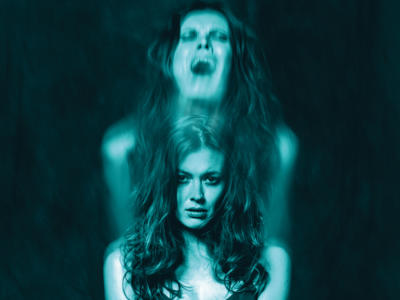An introduction to Rusalka
Here’s everything you need to know about ENO’s production of Dvořák’s Rusalka.
It’s Dvořák’s finest opera
It was in 1899 that Antonín Dvořák began looking for a libretto for his next opera. Librettist Jaroslav Kvapil provided him with a text, and by 1900 Dvořák’s greatest opera, Rusalka, was composed.
Water nymph Rusalka turns to a witch to help her turn human so the prince will fall in love with her. Rusalka quickly learns that if she is to be with him, she is to risk everything, learning the hard way that true love can come at a terrible price.
Video
The opera mirrors Hans Christian Andersen’s The Little Mermaid
Rusalka’s libretto draws inspiration from a number of sources, notably the French legend Melusine and Andersen’s fairy tale.
Danish author Andersen is remembered for his fairy tales including The Emperor’s New Clothes, The Ugly Duckling and Thumbelina. The Little Mermaid (1836) is the most famous of his works, thanks to the Disney adaptation.
Unlike Disney’s version of the tale, neither the opera nor Andersen’s story have a happy ending.
Video
Dvořák is a Czech composer
Born in 1841, Antonín Dvořák is considered one of the most important Czech composers, alongside Bedřich Smetana and Leoš Janáček.
The composer’s main introduction to opera came in 1862, when he played the violin in an orchestra. The chief conductor of this orchestra was none other than composer, Smetana. In 1863, he even played in a concert of Wagner’s music conducted by the German composer himself.
Although Rusalka is the composers best known work, he produced a number of famous pieces of music such as Symphony No.9 and String Quartet No.12.
You might have heard it before…
The most famous song from the opera is Rusalka’s ‘Song to the Moon’ (‘Měsíčku na nebi hlubokém’). In it, Rusalka sings of her love for the prince, asking the moon to tell him how she feels.
In the opera, this aria is one of the few times you will hear Rusalka sing. Soon after this song, she agrees to give up her voice to turn human.
Video
Our new production is directed by Tatjana Gürbaca
German director Gürbaca, Opernwelt’s Director of the Year 2013, makes her ENO debut alongside conductor Antony Hermus.

